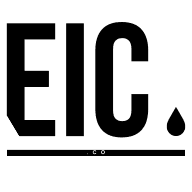What Tools Are Indispensable for Content Planning?
Have you ever wondered what tools top industry leaders can't live without for content planning? In this article, insights from Founders and Co-Founders reveal their indispensable resources for efficient content creation. Discover why Trello is essential for organizing content efficiently, and how Keyword Tracking helps prioritize content creation. With seventeen expert insights, this article will provide you with the best tools and strategies to enhance your content planning process.
- Trello Organizes Content Efficiently
- Google Analytics Informs Content Strategy
- Google Calendar Boosts Engagement
- Airtable Streamlines Project Management
- Visual Planner Increases Online Revenue
- Ahrefs Identifies Content Gaps
- Trello Manages Content Workflows
- Google Analytics Shapes Content Plans
- Keyword Planner Guides Content Strategy
- Asana Simplifies Campaign Management
- CoSchedule Plans Content in Advance
- Airtable Organizes Content Production
- Excel Tracks Content Ideas
- Trello Facilitates Collaboration
- Trello Organizes Content Creation
- Proprietary Software Streamlines Content Planning
- Keyword Tracking Prioritizes Content Creation
Trello Organizes Content Efficiently
One tool I find indispensable for content planning is Trello. Its flexibility in organizing content calendars, tracking deadlines, and assigning tasks makes it an absolute powerhouse for both solo entrepreneurs and teams. I've used Trello extensively in my coaching programs to help business owners streamline their content creation process. Its visual layout allows users to easily manage multiple content streams while integrating with other platforms like Google Drive or Slack, making collaboration seamless. For someone juggling several business ventures and coaching hundreds of clients, having an organized system like Trello ensures that nothing falls through the cracks.
One client I worked with was a digital marketing agency struggling with inconsistent social media content. Drawing on my years of experience in growing my own businesses, I introduced them to a Trello board customized for their needs. Together, we mapped out their content strategy for three months, including themes, posting schedules, and team responsibilities. Within weeks, they experienced an increase in engagement because their messaging became consistent and aligned with their target audience. My background in efficiency and systems allowed me to guide them to better execution, proving that the right tool, paired with expert strategy, can produce incredible results.
Google Analytics Informs Content Strategy
For content planning, one tool that I find indispensable is Google Analytics. As a digital marketing strategist, understanding the behavior of your audience is crucial for creating content that resonates. Google Analytics allows me to gain insights into user behavior, track engagement, and identify which content pieces are performing best. This data-driven approach ensures our campaigns are not only relevant but also effective in capturing targeted leads.
For example, when working with a real estate client at Avarr Webbing, we noticed certain blog posts were driving significant traffic and conversions. By analyzing this data, we doubled down on similar topics and formats, leading to a 30% increase in lead generation over three months. This type of insight is vital for adjusting content strategies on the fly, ensuring resources are allocated effectively.
In my experience, leveraging Google Analytics has been key to scaling marketing initiatives, especially in competitive industries like legal and real estate. It allows me to create data-backed content plans, ensuring every piece of content contributes to reaching business objectives.

Google Calendar Boosts Engagement
Google Calendar with content themes is my absolute lifesaver for planning open houses and property showcases because it helps me coordinate with my team and track seasonal real estate trends. Last spring, I created a detailed content calendar that mapped out virtual tours and homeowner tips, which boosted our engagement by 40% and helped more clients find their dream homes.

Airtable Streamlines Project Management
I swear by Airtable for organizing our sustainability consulting projects - it's like a supercharged spreadsheet that lets me track everything from expert availability to project milestones. When I first started matching consultants with clients, I was drowning in scattered Excel files and emails until a colleague showed me how to build custom views and automations in Airtable. Now our whole team can see real-time updates on project statuses, consultant schedules, and client requirements all in one place, which has cut our planning time in half.

Visual Planner Increases Online Revenue
My go-to tool for content planning is OneStop Northwest's Visual Planner. It provides an intuitive media library and calendar that streamline the process of organizing and scheduling content across multiple platforms. This adaptability is crucial when tailoring content strategies to meet the unique needs of each client.
I've witnessed the Planner's impact when helping a small startup. By effectively managing their social media content, their online revenue increased by 300% in just one year. It organized their campaigns, ensuring consistent brand messaging and improved audience engagement.
The built-in editor allows for quick revisions, and its hashtag suggestions optimize reach. This adaptability saves time, improves team collaboration, and aligns with evolving social media strategies, ensuring content stays relevant and engaging.

Ahrefs Identifies Content Gaps
Ahrefs is my go-to tool for planning Shopify-focused content because it shows me exactly what our e-commerce audience is searching for and where we can fill knowledge gaps. Last quarter, I discovered several untapped keywords about Shopify optimization that led to creating highly engaging how-to guides, resulting in a 25% increase in organic traffic to our client resources.

Trello Manages Content Workflows
Trello is an indispensable tool for content planning. Its simple, visual layout makes it easy to organize content by stages, from ideation to publishing. We can assign tasks, set deadlines, and track progress in one central place, ensuring everyone on the team is aligned. What I like most is its flexibility; it integrates seamlessly with other tools we use, making it a perfect fit for managing content workflows efficiently and keeping everything organized without overcomplicating things.

Google Analytics Shapes Content Plans
Think of content planning as a compass guiding you through uncharted territory - without the right tools, you're essentially navigating blindfolded. Google Analytics is our most indispensable tool for content planning. Its insights based on real user behavior provide us with crucial information about our audience. We can see exactly how potential clients interact with our legal resources, practice area pages, and educational content. Our team analyzes various metrics like traffic sources, popular pages, bounce rates, and demographics. This detailed review helps us understand which legal topics and content formats create the strongest connection with people seeking legal representation. The tool's true value comes from its ability to turn numbers into clear action plans. These insights shape our firm's outreach and client acquisition efforts. Through Google Analytics, we've refined our content to better serve potential clients. We focus specifically on those searching for information about personal injury claims, mass tort litigation, and business disputes. This evidence-based approach ensures our content strategy matches our audience's needs. As a result, we're able to build more meaningful connections with those requiring our legal expertise.

Keyword Planner Guides Content Strategy
For content planning, the Google Keyword Planner is indispensable. Having worked extensively with it at Linear Design, I've seen how it can dramatically streamline the process of finding the right audience keywords. It's a free tool that provides valuable data on keyword performance, which is crucial for aligning content with what your audience is actively searching.
For instance, during a campaign for a global client focusing on health products, we used the Keyword Planner to identify high-volume search terms. This allowed us to increase the client's ad performance by narrowing down content topics that rank well and attract organic traffic. This tool is not just for keyword finding but can guide your content strategy to be more data-driven.

Asana Simplifies Campaign Management
For content planning, Asana is indispensable. It simplifies the chaos of managing multiple campaigns. You can create clear project timelines, assign tasks, and track progress visually. This makes it easy to see where everything stands at a glance.
It excels at collaboration. Team members can share feedback, upload files, and discuss ideas directly within the platform. With features like task assignment and deadline tracking, you can ensure nothing slips through the cracks.
Asana also integrates well with tools like Google Calendar and Slack, keeping all workflows streamlined. For content teams, it ensures smooth coordination, improved efficiency, and that deadlines are always met. Without it, keeping track of everything would be a struggle.

CoSchedule Plans Content in Advance
I can't imagine not having CoSchedule when I work. I want to have it as easy as possible so I don't have to post things quickly at the last minute. CoSchedule helps me keep everything in order, so I can plan my content calendar weeks in advance. I can see what's working and what's not, so I can keep my focus on the things that make my business grow.
This is a big step forward: I can now plan ahead and change my method as I go. I don't have to switch tools or keep track of everything by hand, which saves me time. When I use CoSchedule, I can plan ahead and make sure that my content fits with what my community wants. This is very important for the growth of my business.
I have used the right tool before, so I know how important it is for a business. I'm thankful that CoSchedule has helped me keep my work useful and tidy.

Airtable Organizes Content Production
A tool I rely on for content planning is Airtable. It combines the flexibility of a spreadsheet with the structure of a database, making it easy to organize content across various stages of production. We use it to track content themes, deadlines, and assigned team members, and even integrate different media assets like images or video links. Airtable's ability to link records and automate workflows allows us to stay on top of tasks without manually updating every single detail. It helps streamline the entire process, making it easier to manage multiple campaigns at once and keep everything centralized.

Excel Tracks Content Ideas
In content planning, my favorite tool is honestly Excel or Sheets. It's free, shareable, and accessible. Also, most people are at least somewhat familiar with how to work Excel. It helps me keep track of my ideas, captions, and also review and keep a chronological record of results. For editing and creating, I try to stay in-app where possible. I also like search tools like Answer the Public or 'Content Gap' on TikTok for SEO optimization and to find pain points in the market.

Trello Facilitates Collaboration
As a Director of Marketing in an affiliate network, Trello is an essential tool for content planning. It organizes tasks, facilitates collaboration, and tracks marketing campaign progress through its Kanban-style boards. Trello's clear visualization of workflows enables teams to manage various content pieces effectively, ensuring a streamlined approach to affiliate marketing strategies. Each card represents specific content, providing insight into what's in progress and what's published.

Trello Organizes Content Creation
One indispensable tool for content planning is Trello. It provides a visually intuitive way to organize content ideas, set deadlines, and track progress. With its boards, lists, and cards, you can easily collaborate with team members, assign tasks, and move content through different stages of production. The ability to integrate with other tools like Google Drive and Slack makes it a versatile choice for streamlining workflows. Trello helps keep content creation organized, ensuring no ideas are overlooked and deadlines are met, which is crucial for maintaining a consistent content strategy.

Proprietary Software Streamlines Content Planning
For content planning, I rely heavily on our proprietary software at Hook'd IT Up. Our "all-in-one" solution offers tools for social media scheduling, campaign management, and analytics tracking. This integration allows us to see the complete picture when designing custom strategies for our clients, providing a seamless workflow that's crucial for efficiency. One standout example was our work with DNKS Drone Photography. By using the software's automated workflows, we developed and tracked targeted content campaigns that resulted in a 40% increase in client inquiries over three months. This experience highlighted the importance of having everything under one roof, so nothing falls through the cracks. The software not only streamlines content planning but also integrates feedback loops with customers using 2-way messaging platforms, allowing us to refine our strategies in real-time. This level of adaptability is crucial, especially for our clients like Precision Home Builders, where precise timing and messaging have led to substantial engagement improvements and increased project inquiries.

Keyword Tracking Prioritizes Content Creation
An essential tool in our content planning process is a keyword rank tracking tool. There are various systems out there to do this, but for our own organization, and all of our clients, we have integrated our keyword ranking tools with Google Sheets so we can track the rankings of all of our existing content, as well as the keywords we want to rank for in the future. Through our content planning process, we prioritize our list of keywords we want to rank for so that we can understand what content needs to be updated, vs what net new content needs to be created. Without keyword tracking over time, it is easy to lose track of what content should be produced for organic SEO efforts.



